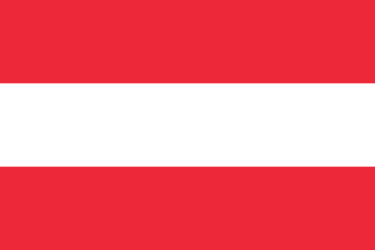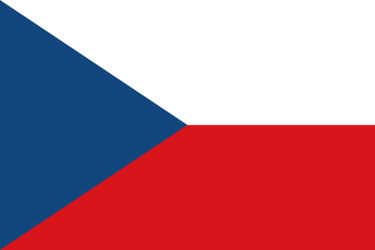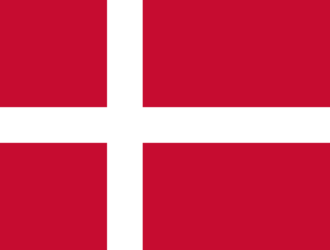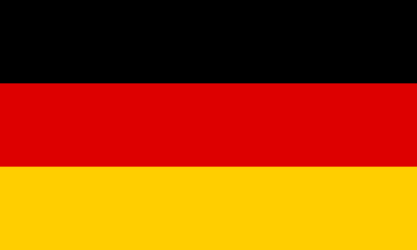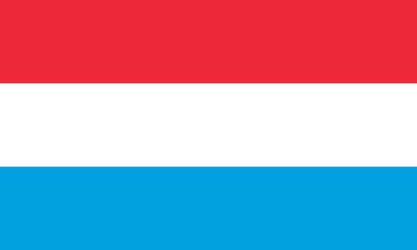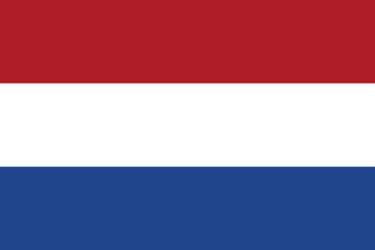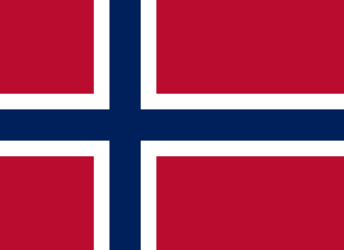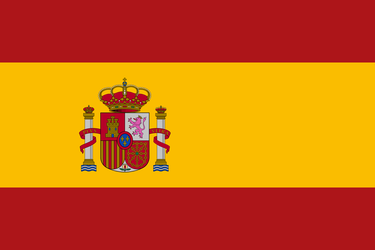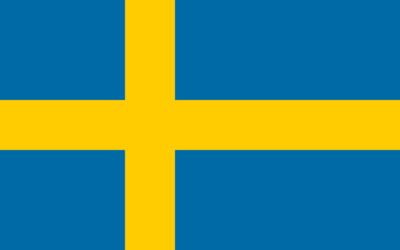European Space Education Resource Office
In brief
Nowadays a decreasing number of young people decide to take up STEM-related (Science, Technology, Engineering and Mathematics) studies and careers. ESA is contributing to make a difference and reverse this negative trend through an Education programme which targets European students starting from an early age. In particular, ESA is addressing early years, primary and secondary education in Europe through its European Space Education Resource Office (ESERO) project.
In-depth
What is ESERO?
The European Space Education Resource Office (ESERO) project is ESA's main way of supporting early years, primary and secondary education community in Europe.
ESERO uses space related themes and the genuine fascination felt by young people for space to enhance school pupils’ literacy and competence in STEM-related subjects. The ESERO project also highlights the associated applications from space and raises awareness of the large range of career prospects in the space domain.
By using the space context to make the teaching and learning of STEM subjects more attractive and accessible, pupils can feel more comfortable and familiar with sciences in general. The ESERO activities aim to help bring STEM subjects within the pupils reach, demolishing the misconception that science is only for geniuses. Space, in particular, becomes not just a place of inspiration and future dreams, but also part of everyday life.
ESERO offer an annual series of national or regional training sessions for early years, primary and secondary school educators and teachers. These are offered in collaboration with national partners who are already active in STEM education. Educator and teacher trainings are, wherever possible, officially accredited as part of continual professional development qualifications.
ESERO uses and disseminates existing ESA/ESERO space-related STEM classroom resources, and if appropriate, develops specific new resources tailored to the education system and national curricula. Real space data and their applications in real-life using scientific methodology, accompanied by role model support of real space experts such as scientists, engineers, and even astronauts, are used as much as possible.
The ESERO project also help stimulate young people’s awareness of Europe’s space programme and of its importance for society and economy.
Where is ESERO located?
The most effective form of space-based education must be the one that supports the specific educational needs of the various Member States, all having different educational systems, different school curricula and, last but not least, different languages. To that end, the ESEROs are distributed across Member and Associate States, and staffed by local experts who work in strong synergy and partnership with their national education authorities and networks.
Currently ESA has established ESERO national offices in twenty-two ESA Member States: Austria, Belgium, Czech Republic, Denmark, Estonia, France, Germany, Greece, Hungary, Ireland, Italy, Luxembourg, Finland, Netherlands, Norway, Poland, Portugal, Romania, Spain, Slovenia, Sweden and UK.
ESERO Austria: based in the ARS Electronica Centre in Linz, a very modern science centre focusing on arts and science, it is co-funded by FFG and ARS Electronica Centre.
ESERO Belgium: ESERO Belgium is based at KU Leuven University, and is operated with a network of key players in STEM education such as: La Scientothèque, the Université Libre de Bruxelles (ULB) and UGent volkssterrenwacht Armand Pien. ESERO Belgium is co-funded by ESA and The Belgian Federal Science Policy Office (BELSPO).
ESERO Czech Republic: based in the city of Prague, it is operated by Planetum – Observatory and Planetarium Prague – in partnership with Brno Observatory and Planetarium and Elixir for Schools (Elixir Do Skol). ESERO CZ is co-funded by ESA and Planetum.
ESERO Denmark: ESERO is operated by the Danish House of Natural Sciences. The main national funding partners of ESERO Denmark are: The Ministry of Higher Education and Science, the Danish House of Natural Sciences, ASTRA, Engineer the Future and the Tycho Brahe Planetarium.
ESERO Estonia: The Tartu Observatory, part of the Tartu University is the host organisation of ESERO Estonia. Tartu University is the national co-funding organisation of ESERO Estonia. Other national partners include the Energy Discovery Centre and the AHHAA Science Centre.
ESERO Finland: ESERO Finland is hosted at the Heureka Science Center. The main national contributions are guaranteed by Heureka and the Jenny and Antti Wihuri Foundation. Other partners and contributors include Åbo Akademi Skolresurs; Aalto University Junior; Science Centre Tietomaa, Oulu; Turku University Science Centre; Joensuu Science Association/SciFest; The Science Teaching Association and the URSA Astronomical Association.
ESERO France: The Centre National d’Etudes Spatiales (CNES) is the host organisation of ESERO France. ESERO France is led by CNES, and is implemented in close collaboration with national partners, such as: the Cité de l’Espace (Science and Space Museum), the national network Planète Sciences, as well as the La Fondation La Main à la Pate (through the Maisons pour la Science). ESERO France is jointly co-funded nationally by CNES and includes partner’s contributions.
ESERO Germany: ESERO Germany is implemented through a consortium of partners in close collaboration with the German Aerospace Center DLR. The consortium is led by the Geomatics Research Group of the Ruhr-University of Bochum and further includes the Remote Sensing Research Group of University of Bonn (UoB); the Zeiss Planetarium Bochum; the Bochum Observatory; the Hausdorff Center for Mathematics (UoB); the Physics Institute (UoB); the Argelander-Institute of Astronomy (UoB); the Institute of Physics Education at Cologne University; and zdi.NRW. ESERO Germany is co-funded nationally by the members of the consortium.
ESERO Greece: based at the Aristotle University in Thessaloniki. Besides ESA, the national funding comes from the Aristotle University of Thessaloniki. ESERO Greece relies on the innovative educational and pedagogical expertise of key Greek national partners, such as the Laboratory Centers of Physical Sciences (EKFE) Community, the Hellenic digital earth Centre of Excellence (HCoE), the Hellenic Education Society of STEM (Ε3STEM), the ATLAS Research Group of AUTh and many others.
ESERO Hungary: jointly co-funded by ESA and nationally by the Hungarian Ministry of Foreign Affairs and Trade. ESERO Hungary is operated by Design Terminal, which implements the project in collaboration with three main partner organisations: ELTE (Eötvös Loránd University), BME (Budapest University of Technology and Economics, Faculty of Electrical Engineering and Informatics) and MANT (Hungarian Astronautical Society).
ESERO Ireland: based in Dublin and is nationally led and co-funded by Research Ireland.
ESERO Italy: jointly nationally co-funded by the Italian Space Agency (ASI). ESERO Italy is operated by MUST, the Fondazione Museo Nazionale Scienza e Tecnologia Leonardo da Vinci, based in Milan, in close collaboration with a network of partners spread across the country including: Fondazione IDIS Città della Scienza in Naples, Planetario lnfini.to in Turin, Museo delle Scienze MUSE in Trento, Fondazione Villa del Balì di Saltara in the Marche region and Psiquadro scarl in Perugia.
ESERO Luxembourg: hosted by the Luxembourg Science Centre in Differdange, ESERO Luxembourg is co-funded nationally by the Luxembourg Space Agency and the Ministry of Education, Children and Youth. The Luxembourg Science Centre collaborates with the Institut de Formation de l’Éducation Nationale (IFEN), the teacher training institute in Luxembourg.
ESERO Netherlands: is since 2025 led and co-funded by the Netherlands Space Office (NSO).
ESERO Norway: based at Andøya Space Education, formerly called the Norwegian Center for Space-related Education (NAROM) in Andenes, Norway. ESERO Norway is funded nationally by the Andøya Space Education and the Norwegian Space Agency.
ESERO Poland: based in the Copernicus Science Centre in Warsaw, it is co-funded by ESA and the Copernicus Science Centre, the largest science centre in Poland which also delivers accredited teacher training on site.
ESERO Portugal: based in the Knowledge Pavilion, Lisbon, it is co-funded nationally by Ciência Viva, the National Agency for Scientific and Technological Culture. The Portuguese Space Agency actively supports the national and regional CanSat competitions, as well as many other activities led by ESERO Portugal.
ESERO Romania: based in the Romanian Space Agency's (ROSA) headquarters in Bucharest, it is co-funded nationally by the Romanian Space Agency (ROSA), sitting under the Romanian Ministry of Education.
ESERO Spain: based in Parque de las Ciencias, Granada, ESERO Spain is funded nationally by the Parque de las Ciencias Consortium, the Andalucía Education Council of Junta de Andalucía, as well as partners in other Spanish regions, such as: Xunta de Galicia, Department d’Ensenyament Generalitat de Catalunya, Centro Astronomico Aragonês, Comunidad de Madrid, Generalitat Valenciana, and many others.
ESERO Slovenia: led by the Centre for School and Extracurricular Activities (CŠOD) in Ljubljana in cooperation with Center Noordung (CN) in Vitanje, ESERO Slovenia is co-funded by CŠOD and CN as well as the Ministry of Education and the Ministry of Economy, Tourism and Sport.
ESERO Sweden: hosted at the KTH Royal Institute of Technology and run in collaboration with the National Museum of Science and Technology in Stockholm (Tekniska), ESERO Sweden is co-funded nationally by the Swedish National Space Agency (SNSA). ESERO Sweden relies on the educational and pedagogical expertise of key national partners, such as the Wisdom consortium, with its centres located across Sweden.
ESERO UK: based at the National STEM Learning Centre in York, it is operated by STEM Learning Ltd. Besides ESA, key funding partners include the UK Space Agency (UKSA) and STEM Learning. Key partner organisations supporting the project are the Department for Education (DFE) and the Science and Technologies Facilities Council (STFC).















 Germany
Germany
 Austria
Austria
 Belgium
Belgium
 Denmark
Denmark
 Spain
Spain
 Estonia
Estonia
 Finland
Finland
 France
France
 Greece
Greece
 Hungary
Hungary
 Ireland
Ireland
 Italy
Italy
 Luxembourg
Luxembourg
 Norway
Norway
 The Netherlands
The Netherlands
 Poland
Poland
 Portugal
Portugal
 Czechia
Czechia
 Romania
Romania
 United Kingdom
United Kingdom
 Slovenia
Slovenia
 Sweden
Sweden
 Switzerland
Switzerland



























